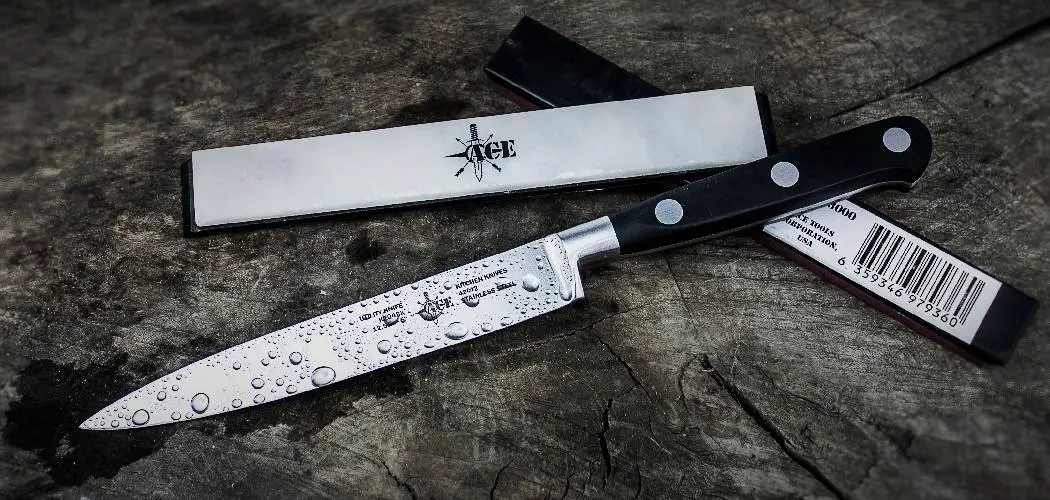Do you have a carbon steel knife that has started to rust or develop a patina?
When it comes to knives, there are a variety of materials that they can be made out of. Carbon steel knives are one such type, and they require a bit of extra care in order to keep them looking and performing their best.
It’s not often that you need to clean a knife, but when you do, it’s important to know how to clean carbon steel knife. Carbon steel knives can rust if they aren’t cleaned and dried properly, so follow these simple steps to keep your carbon steel knife in good condition.
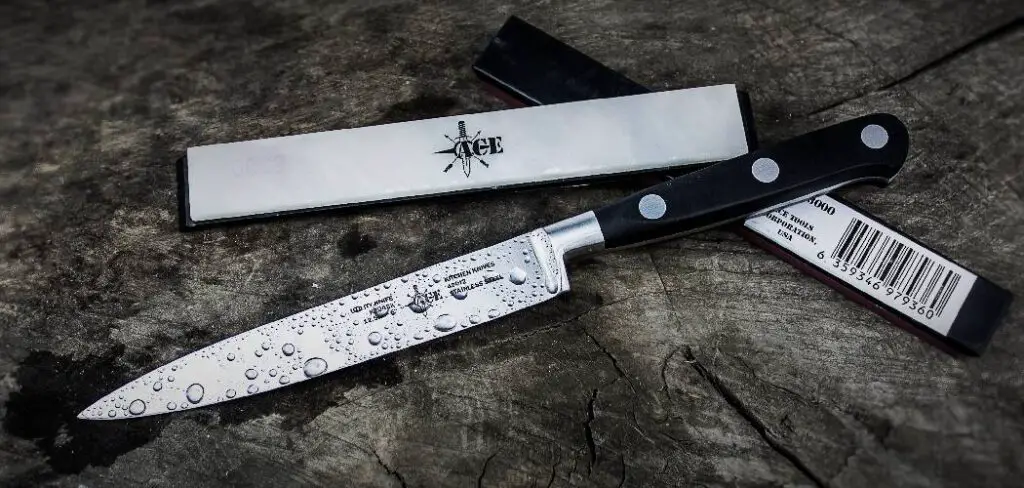
If you’re like me, you probably use your carbon steel knife every day. They’re incredibly sharp and durable, but they can also be a little tricky to clean. In this blog post, I will show you the easiest way to clean your carbon steel knife and keep it in good condition. Let’s get started!
How Can Rust Form a Carbon Steel Knife?
Carbon steel knives are susceptible to rust because they contain iron. When the carbon steel knife is exposed to water or moisture, the iron can oxidize and form rust.
It’s important to note that a little patina on your knife is not necessarily bad. In fact, many chefs prefer the patina on their knives because it adds character and can even improve the knife’s performance. When rust starts to form, you need to take action to clean your carbon steel knife.
Necessary Tools and Materials:
- Mild dish soap
- Soft sponge or cloth
- White vinegar
- Olive oil
- Towel
These simple tools are all you will need to clean your carbon steel knife.
10 Easy Steps on How to Clean Carbon Steel Knife
Step 1: Wash With Mild Dish Soap and Water
First, wash your knife with mild dish soap and warm water. Use a soft sponge or cloth to gently scrub away any food particles or debris on the blade.
Make sure not to use too much pressure or scrub too harshly, as this can damage the blade.
Step 2: Dry Immediately
After washing, it’s important to dry your carbon steel knife immediately. Leaving water or moisture on the blade can lead to rusting. Use a towel to gently pat dry the knife, making sure to get into all of the crevices and corners. Don’t forget also to dry the handle of the knife.
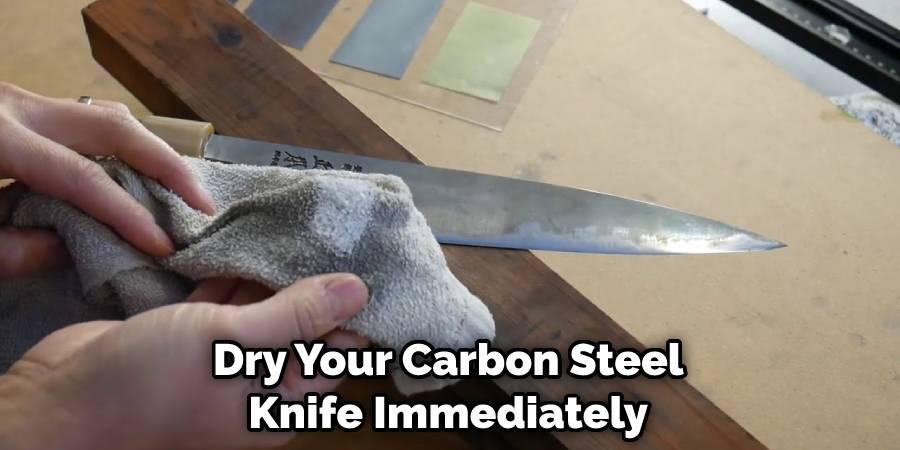
Step 3: Use White Vinegar
If you notice any rust or discoloration on the blade, use a cloth soaked in white vinegar to scrub away the rust gently. White vinegar is a natural and effective way to remove rust without damaging the blade. Be careful not to scrub too harshly, as this can damage the blade.
Step 4: Apply Olive Oil
After cleaning and drying your knife, it’s important to apply a thin layer of olive oil on the blade. This will prevent rust from forming in the future and keep the blade in good condition. Use a soft cloth or paper towel to apply a thin layer of olive oil on the blade, making sure not to leave any excess oil. Don’t use olive oil on the handle of the knife. Because it’s a natural material, it can lead to the handle becoming sticky or slippery.
Step 5: Store Properly
Proper storage is key to preventing rust and maintaining your carbon steel knife’s condition. Make sure to store your knife in a dry place, away from moisture or water. It’s also important not to store your knife in a block or sheath that is too tight, as this can also lead to rusting.
Step 6: Clean and Maintain Regularly
In order to keep your carbon steel knife in good condition, it’s important to clean and maintain it regularly. This means washing and drying the blade after each use, periodically cleaning with white vinegar, and applying a thin layer of olive oil.
Step 7: Avoid Dishwasher
To protect the blade and prevent rusting, it’s best to avoid putting your carbon steel knife in the dishwasher. Because of the high heat and harsh detergents, it can damage the blade and lead to rusting. Stick to hand washing with mild soap and water, as outlined in step 1.
Step 8: Avoid Cutting Frozen or Sticky Foods
Cutting frozen or sticky foods can damage the blade of a carbon steel knife and make it more susceptible to rusting. Stick to cutting softer foods, such as fruits and vegetables. Be careful with cutting bone as well, as this can also damage the blade.
Step 9: Sharpen Regularly
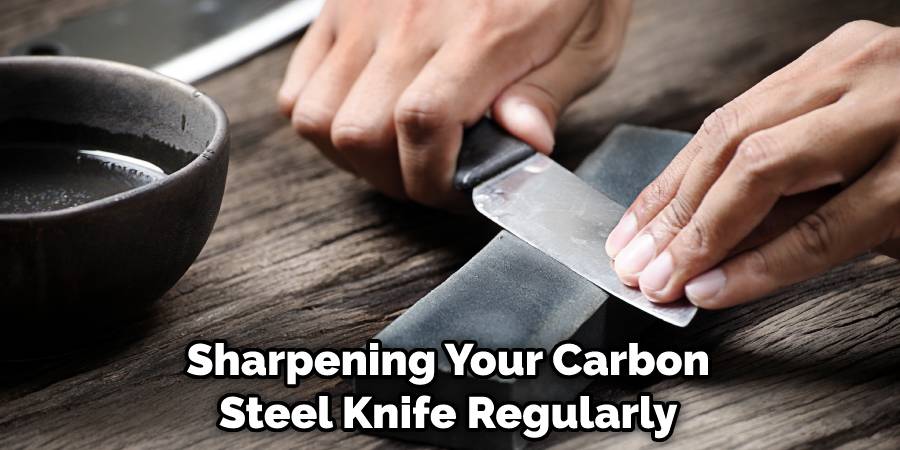
Sharpening your carbon steel knife regularly will not only improve its performance but also prevent rusting. A dull blade can lead to the knife being used improperly, causing damage and rust to form. Make sure to use the proper sharpening technique and tools for your specific knife.
Step 10: Replace When Necessary
Over time, your carbon steel knife may become worn down or damaged, causing it to rust more easily. When this happens, it’s important to replace the knife to maintain a sharp and rust-free blade.
Following these steps on how to clean a carbon steel knife will help keep your knife in good condition and prevent rusting. Remember to wash, dry, and oil regularly, sharpen often, and replace the knife when necessary. Happy cooking!
7 Additional Tips and Tricks
- Avoid cutting board materials such as glass or stone, as they can dull the blade.
- Store the knife properly after cleaning, using a knife block or magnetic strip to protect the sharp edge.
- To remove stuck-on food from the blade, use a nylon scrubbing brush instead of metal, damaging the steel.
- When sharpening or honing the knife, use a whetstone specifically made for carbon steel knives.
- Regularly oil the blade with mineral oil to prevent rusting and maintain its shine.
- Have your carbon steel knife professionally sharpened at least once a year to maintain its sharpness and prevent damage.
- Consider rust-protective materials for long-term storage, such as a wax coating or a rust-inhibiting cloth.
These tips will help keep your carbon steel knife clean, sharp, and in good condition for years to come. Happy cooking!

5 Precautions You Can Take While Cleaning Carbon Steel Knife
- Use caution when handling the knife, as it can be sharp.
- When cleaning with vinegar or other acidic solutions, wear gloves to protect your hands.
- Clean in a well-ventilated area to avoid inhaling any fumes from cleaning products.
- Avoid using harsh scrubbing tools on the blade to prevent damage.
- Keep the knife out of reach of children to avoid injury.
Taking Precautions during the cleaning process can help keep you and your knife safe. Happy cooking!
Frequently Asked Questions
Does Oil Good for Carbon Steel Knife?
Yes, regularly oiling a carbon steel knife can prevent rusting and maintain its shine. It is important to use the proper type of oil for carbon steel, such as mineral oil. Be sure to clean off any excess oil before storing the knife. Happy cooking!
Can I Use Carbon Steel Knife for Cutting Frozen Food?
Cut frozen or sticky foods with a carbon steel knife is not recommended, as it can damage the blade and make it more susceptible to rusting. Stick to cutting softer foods, such as fruits and vegetables. Be careful with cutting bone as well, as this can also damage the blade. Happy cooking!
Why Did My Knife Turn Black?
A black discoloration on a carbon steel knife could be caused by rust or patina. Rust can form if the blade is not properly cleaned and dried after use, while patina is a natural darkening of the steel that occurs with regular use and exposure to moisture. Both can be removed with proper cleaning and maintenance, but some people prefer the patina as it can add character to the knife. Happy cooking!
Can Vinegar Damage Carbon Steel Knives?
While vinegar can be used as a cleaning solution for carbon steel knives, it is an acidic substance and can potentially damage the blade if left on for too long. Make sure to thoroughly rinse and dry the knife after using vinegar as a cleaner. Happy cooking!
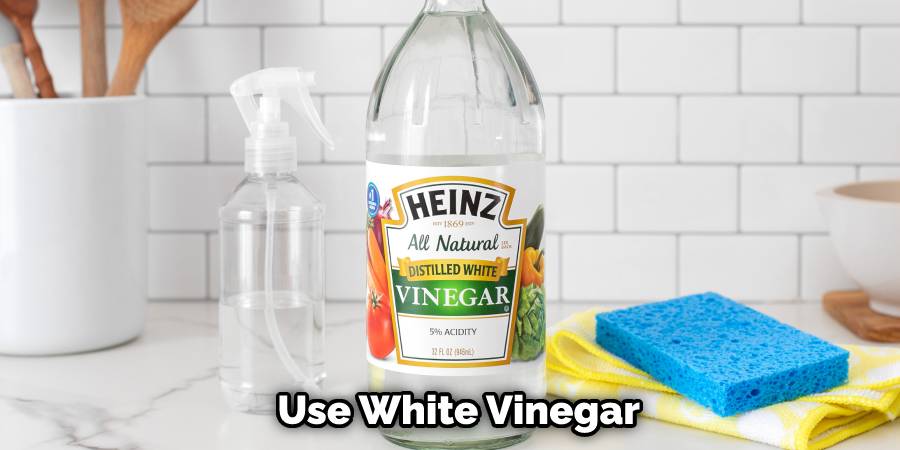
Conclusion
While it may seem daunting at first, cleaning a carbon steel knife is not difficult if you follow the proper steps. By taking the time to care for your knife, you will extend its lifespan and improve its performance. With just a little bit of elbow grease, you can keep your carbon steel knife clean and looking like new.
Now that you know how to clean carbon steel knife, the world is your oyster regarding recipes. By following the steps above, you will be able to easily clean your carbon steel knife and keep it in good condition. A well-seasoned and cared for carbon steel pan can last a lifetime if properly maintained.
With proper cleaning and seasoning techniques, your carbon steel cookware will provide delicious meals for years to come.

